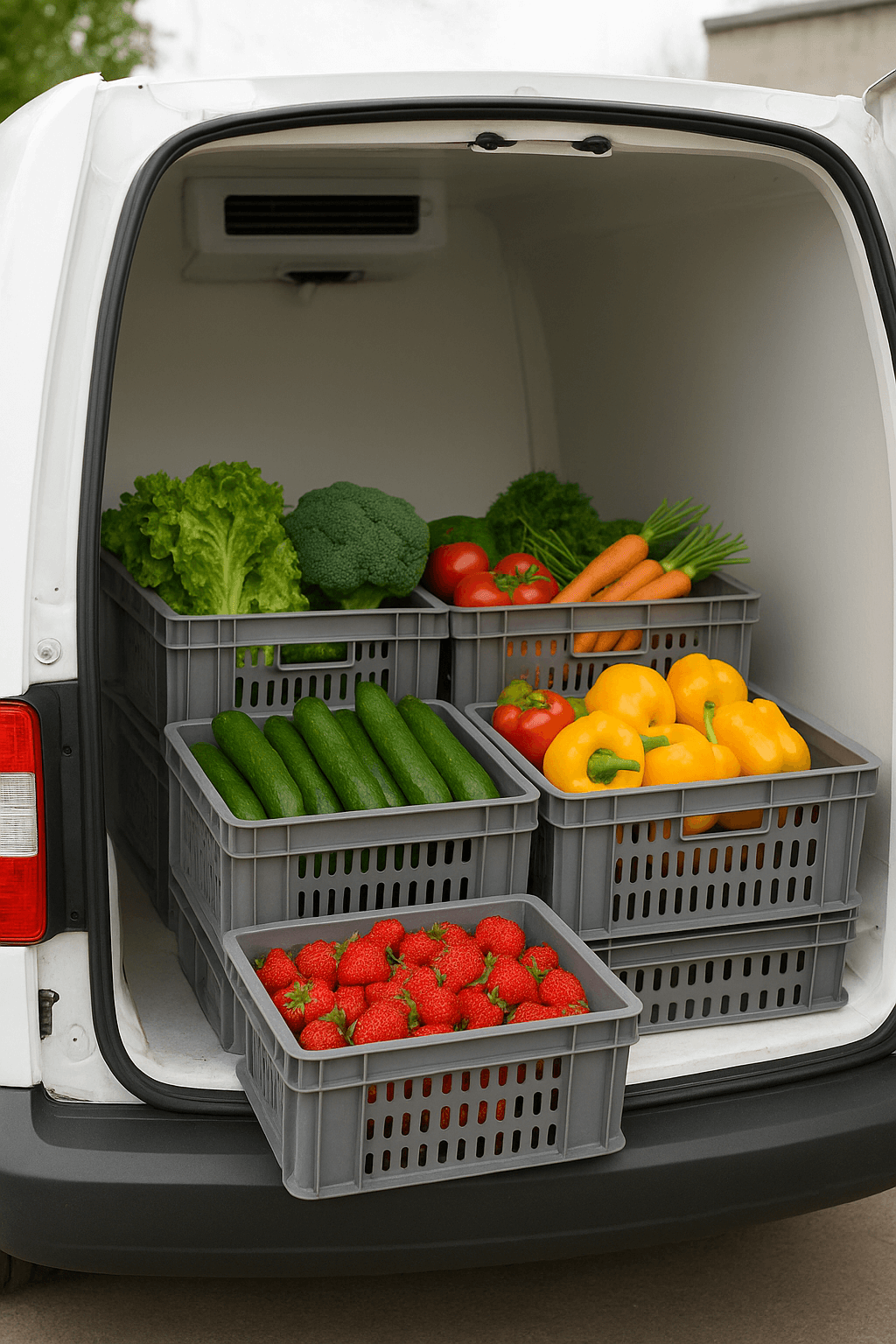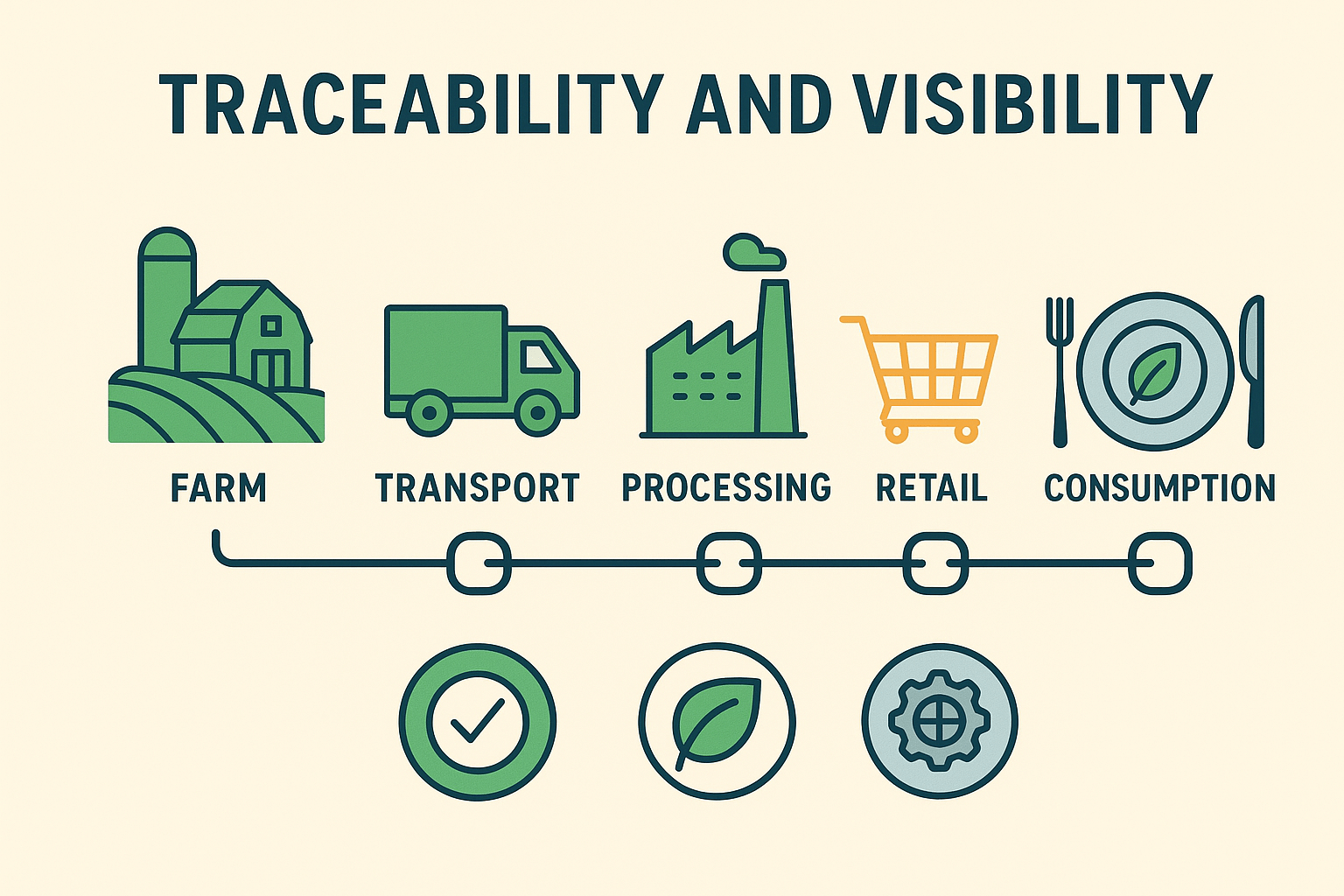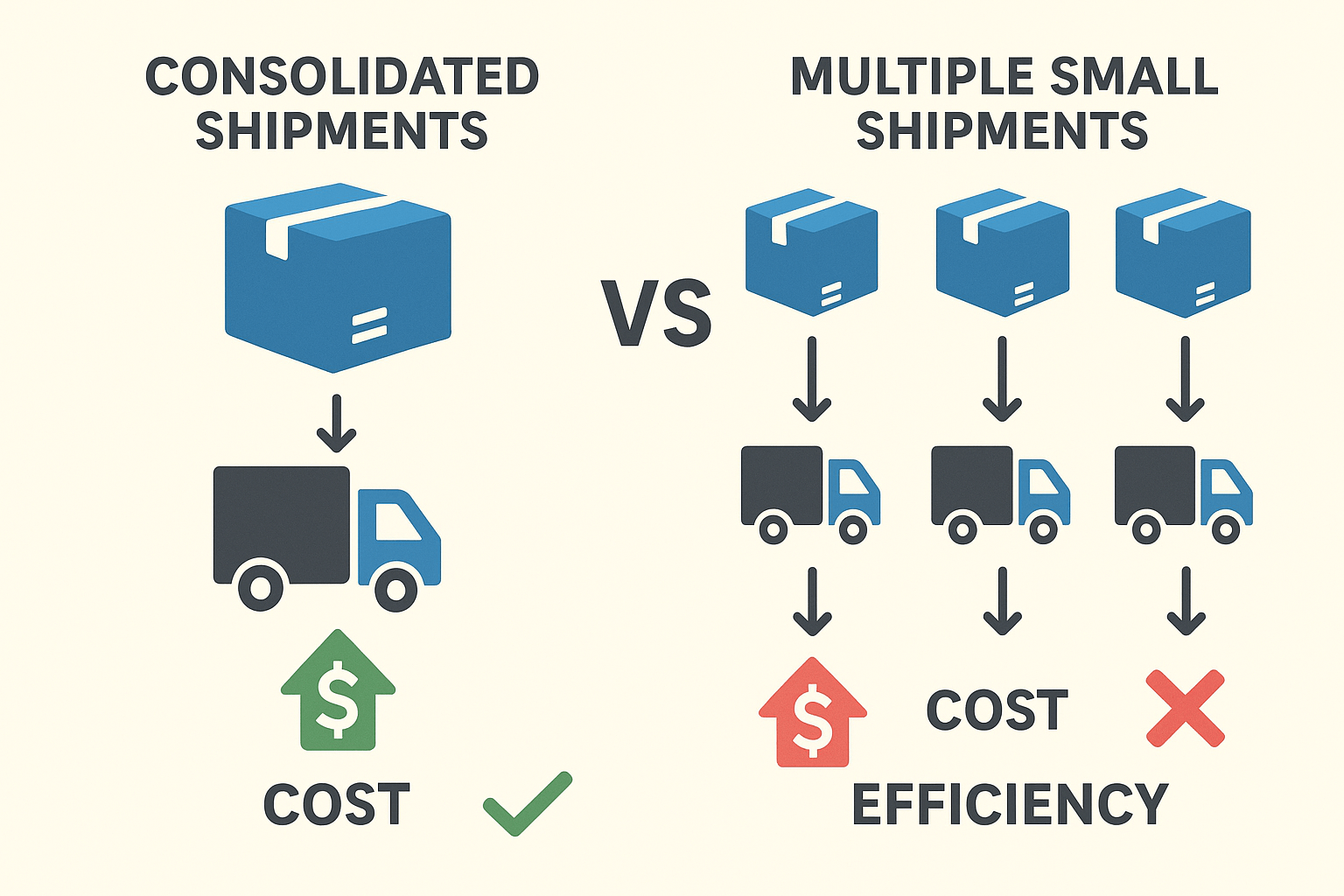Shipping food and beverages isn’t just about moving products from point A to B—it’s a delicate process that requires speed, care, and coordination. For small businesses and budget-conscious shippers, understanding the main challenges can save money, reduce waste, and ensure products arrive fresh and safe. This guide explains key obstacles and practical tips to navigate food and beverage shipping effectively.The Main Challenges of Food and Beverage Shipping: Tips for Safe Delivery
Table of Content:
- What Makes Food and Beverage Shipping So Complex
- Why Is Traceability and Visibility Important in Food Shipping
- How Can Communication Breakdowns Affect the Supply Chain
- What Are the Key Challenges of Quality Control and Maintenance
- How Can YK Freight Help Overcome These Challenges
- What Practical Steps Can Budget-Conscious Shippers Take?
What Makes Food and Beverage Shipping So Complex?
Shipping food and beverages is far from simple. Unlike other goods, food products are highly perishable and sensitive to time, temperature, and handling. Fruits, vegetables, dairy, meat, and beverages can spoil quickly if they are not stored and transported under the right conditions. Even a short delay in delivery or a small lapse in temperature control can turn fresh produce into waste. For example, a shipment of fresh strawberries delayed by just a day may arrive moldy or mushy, making it unsellable.

Fast and reliable delivery is critical because consumers expect fresh, high-quality products at stores and restaurants. In today’s market, speed isn’t just a convenience—it’s a requirement. Slow or inconsistent shipping can disrupt supply chains, leaving shelves empty, orders unfulfilled, and customers dissatisfied. For small businesses or budget-conscious suppliers, these delays can also mean lost revenue and wasted resources, since perishable goods can’t simply be stored for later sale.
The stakes are high beyond just money. Spoiled or contaminated products can harm consumers, leading to foodborne illnesses and serious safety issues. In addition, incidents of spoiled shipments or mishandled goods can damage a company’s reputation, sometimes permanently. Consumers are quick to share negative experiences online, and a single bad shipment can make customers lose trust in a brand.
Why Is Traceability and Visibility Important in Food Shipping?
Traceability and visibility are crucial in food and beverage shipping because customers want to know exactly where their food comes from and how it has been handled. Shoppers today aren’t just buying products—they are buying trust. They care about the origin of their food, whether it meets safety and sustainability standards, and whether it has been properly stored and transported. Certifications, eco-labels, and origin information all help build this trust.

For example, a survey by the Marine Stewardship Council found that 66% of consumers consider traceability a key factor when buying seafood. People want assurance that the fish they eat comes from responsible sources and hasn’t been mislabeled or mishandled along the supply chain. Similarly, eco-labels on fruits, vegetables, or packaged goods can reassure shoppers that the product meets environmental or ethical standards.
Visibility is not only important for customer trust—it also helps reduce the risk of fraud. Food supply chains are complex, and incidents like the horsemeat scandal in Europe show how easily products can be mislabeled or tampered with. Without proper tracking systems, businesses may unknowingly sell or ship contaminated or counterfeit goods, leading to serious legal, financial, and reputational consequences.
How Can Communication Breakdowns Affect the Supply Chain?
Food and beverage supply chains are often extremely fragmented, involving multiple suppliers, producers, distributors, and retailers spread across the globe. From farms and factories to warehouses and retail stores, each step requires precise coordination to ensure products arrive fresh and on time. When communication breaks down at any point, it can create delays, confusion, or even errors that compromise product quality.
For example, if a supplier fails to inform a distributor about a delay in shipment, the receiving warehouse might not have the proper storage prepared, leading to spoiled goods. Similarly, miscommunication between transport teams can result in incorrect handling, missed temperature controls, or late deliveries. Even small lapses can ripple through the entire chain, causing wasted products, lost sales, and frustrated customers.
One way to prevent these issues is by narrowing your supplier list to only the most reliable partners. Fewer suppliers mean fewer points of potential failure, making communication simpler and more manageable. Additionally, modern technology can greatly improve supply chain communication. Tools for real-time tracking, monitoring, and auditing allow businesses to know exactly where their products are and in what condition. This transparency helps catch issues early, avoid delays, and maintain product quality from origin to shelf.
What Are the Key Challenges of Quality Control and Maintenance?
Ensuring the quality of food and beverages throughout the supply chain is one of the biggest challenges in shipping. Proper storage, warehousing, and transportation conditions are essential to keep products safe and fresh. Temperature-sensitive items like dairy, meat, and frozen foods require strict climate control, while fragile items like fruits and baked goods need careful handling to avoid bruising or damage. Even small mistakes in storage or transport can lead to spoiled or unsellable products.
Spoilage doesn’t happen only because of late delivery. Poor warehouse organization, overcrowded storage, inconsistent refrigeration, or damaged packaging can all compromise product quality. For instance, stacking crates too high or failing to rotate stock properly can result in some items being crushed or left to deteriorate. Additionally, human error during loading and unloading, or improper monitoring of temperature and humidity, can turn perfectly good products into waste.
To prevent these problems, strict tracking of product conditions is crucial. Businesses need organized processes that monitor temperature, humidity, and handling at every step. Using real-time monitoring tools, inspections, and quality audits helps catch issues before they escalate, ensuring products reach consumers in excellent condition. Consistency, attention to detail, and proactive management are the keys to avoiding costly disruptions and protecting both profits and reputation.
How Can YK Freight Help Overcome These Challenges?
Managing the complex logistics of food and beverage shipping can be overwhelming, especially for small businesses or budget-conscious suppliers. Outsourcing transportation to an experienced company like YK Freight can make a huge difference. With industry expertise and specialized resources, YK Freight handles the details that often cause delays, spoilage, or miscommunication, allowing businesses to focus on other priorities.
One of the main benefits of working with YK Freight is their ability to track and trace shipments in real time. From the moment products leave the farm or factory to the moment they reach the retail shelf, YK Freight monitors conditions, temperature, and location. This visibility ensures that food items are handled properly and arrive fresh, reducing the risk of spoilage or customer complaints.
Communication is another area where YK Freight adds value. Coordinating multiple suppliers, transport teams, and warehouses can be challenging, but YK Freight uses advanced systems to keep everyone on the same page. This reduces errors, avoids delays, and ensures smooth operations across the supply chain.
Additionally, YK Freight’s resources can streamline tedious manual tasks like documentation, auditing, and compliance checks. By managing these operations efficiently, they help protect product quality, save time, and reduce costs. For budget-conscious shippers, this means reliable service without the stress of micromanaging every step of the shipping process.
What Practical Steps Can Budget-Conscious Shippers Take?
For small businesses or individuals shipping food and beverages on a tight budget, smart planning can make a big difference. One effective strategy is consolidating shipments. Instead of sending multiple small deliveries, combining products into fewer, larger shipments reduces transportation costs while keeping goods moving efficiently. For example, a small farm delivering fresh produce to several local stores can save money by coordinating deliveries on the same route rather than making separate trips.

Planning routes carefully is another key step. Choosing the fastest, most reliable routes reduces travel time, lowers fuel expenses, and helps maintain product quality. Even small delays can lead to spoilage, so investing a little time upfront in route optimization pays off in both cost savings and reduced waste.
Selecting reliable logistics partners is equally important. Companies like YK Freight can provide consistent service, proper handling, and real-time tracking without the high overhead of managing logistics internally. Working with a trusted partner ensures products stay fresh and reduces the risk of costly mistakes.
Budget-conscious shippers can also leverage technology. Simple tools for monitoring temperature, inventory, and shipment status help catch problems early, avoiding losses before they happen. For example, a small bakery using temperature sensors in delivery vans can prevent frozen desserts from melting en route.
By combining these practical steps—consolidation, careful route planning, reliable partners, and smart monitoring—shippers can save money while protecting the quality of their products. Even with a limited budget, these strategies make it possible to deliver food and beverages safely, efficiently, and reliably.
Further Reading
What is a Cold Chain?
Food Grade Dry Van: Key Standards and Requirements Explained
Refrigerated Container Drayage: How to Keep Your Cargo Fresh?
Why Supply Chain Cyber Security Matters for Safe and Cost-Effective Shipping






ASK YOUR QUESTIONS